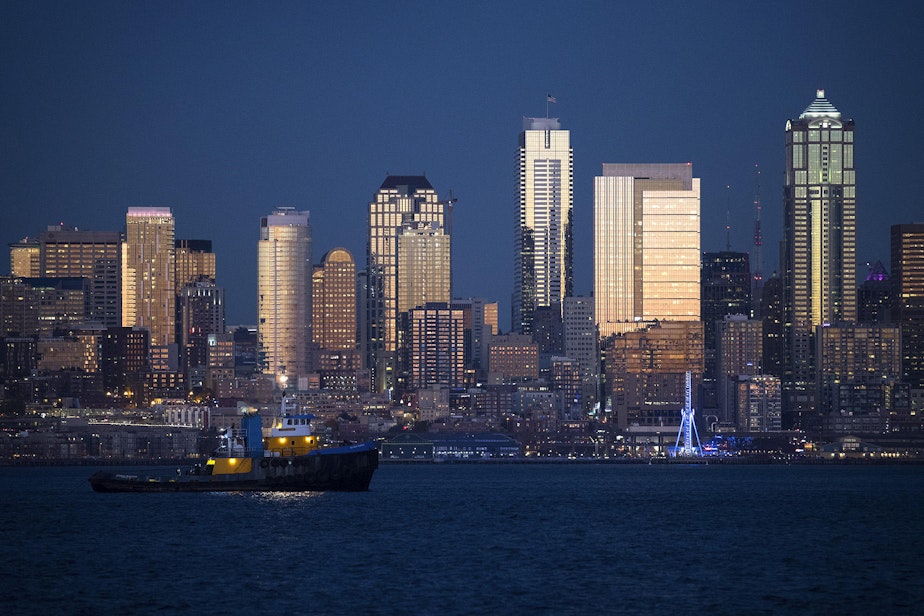Seattle 2020 and an economic downturn foretold

Rents are down, the resale housing market has been slipping for three months, and Amazon’s hiring in Seattle has slowed. The city’s budget director says 2020 could be the start of an economic downturn.
The Seattle City council is considering mayor Jenny Durkan’s proposed budget, which would run over two years – 2019 and 2020.
The city's budget office told council members that 2020 is the year higher interest rates and lower federal spending are expected to pull money out of the national economy. That would leave Seattle with a major employer — Amazon — growing elsewhere.
Rents are an important indicator. Rents in Seattle fell 3 percent from July 2017 to July 2018, the budget office said. Seattle added about 10,000 units in 2017 and as of April this year, about 22,000 more units have been permitted and are in the "pipeline" for development. That's good news for renters, but it may send a signal to builders that it's time to scale back on building new units, said city budget office director Ben Noble.
"It's patterns like this that will start to shift the decisions about whether apartment units are built or not," he said. "When we think about the other side of this, and our dependence on construction revenues, this kind of softening previews a softening on the construction side as well."
Revenues from sales taxes coming from construction larded Seattle's coffers during the boom, fueling post-recession spending particularly to fight homelessness. The money is still gushing in far beyond the city's dreams in 2010. However, 2018 is expected to be the peak. There will be less construction from companies like Amazon and potentially less housing construction — less boom.
The Trump administration's rapidly changing trade policy presents additional risks for Seattle's trade-dependent economy. "A trade war if you will certainly has the risk of slowing down the U.S. economy," Noble said. "With it our state economy, and with it our local economy."
Durkan’s proposed budget relies on a little economic growth – roughly 3 percent inflation. However, Noble said, "it does not anticipate a decrease in revenues."
That may prove a problem if Seattle does fall into downturn around 2020, he said. However the proposed budget does include more cash for the city’s rainy day fund – money the city can spend if revenues decline. That fund is expected to add about $10 million a year, totaling $60.4 million in 2020.



